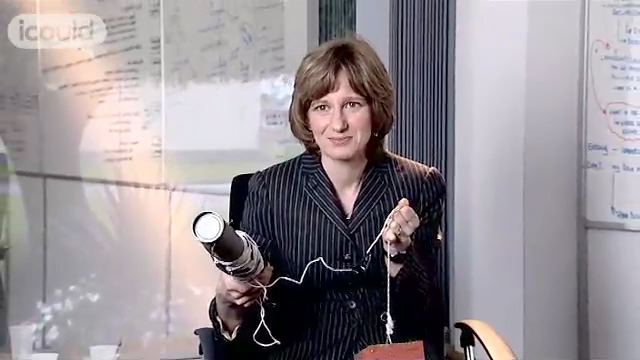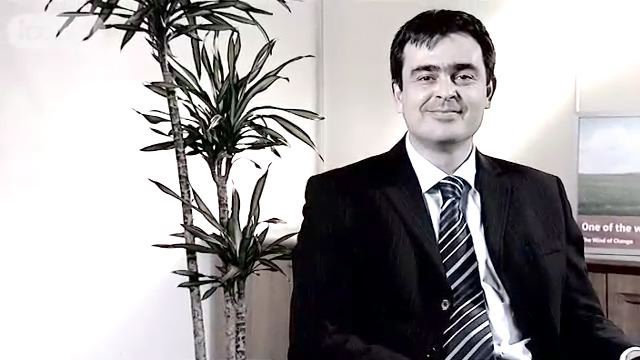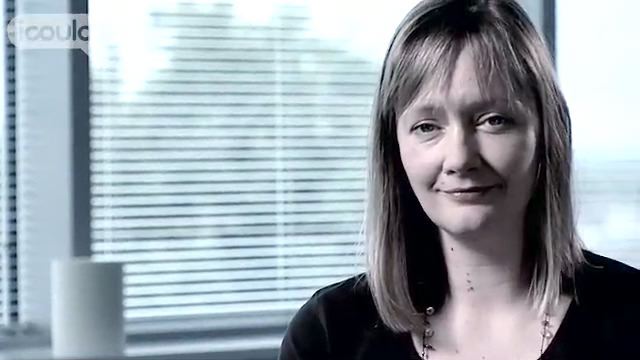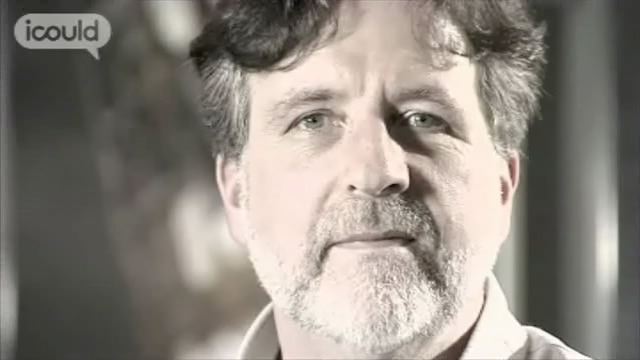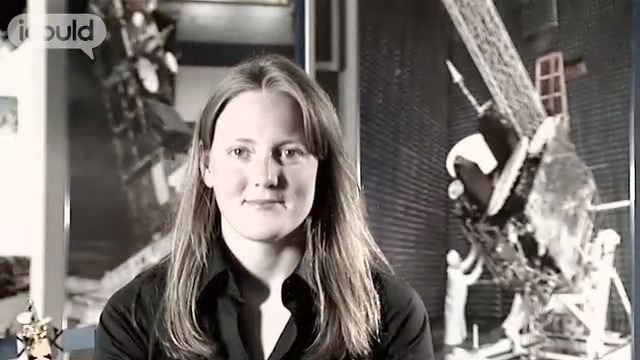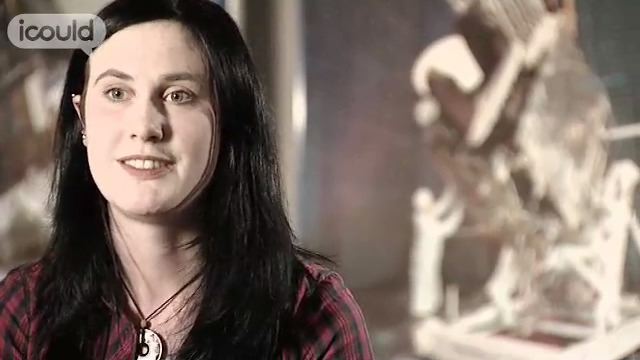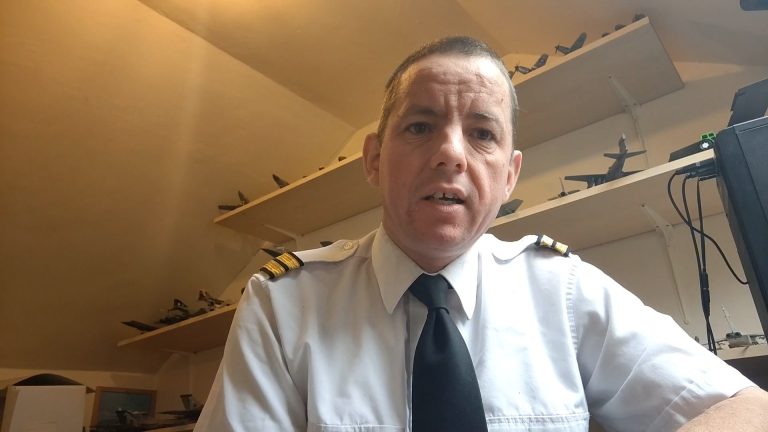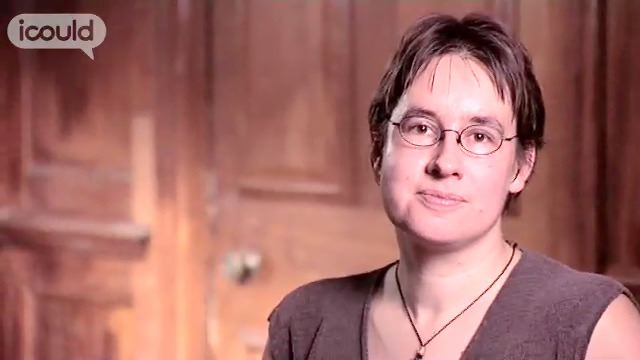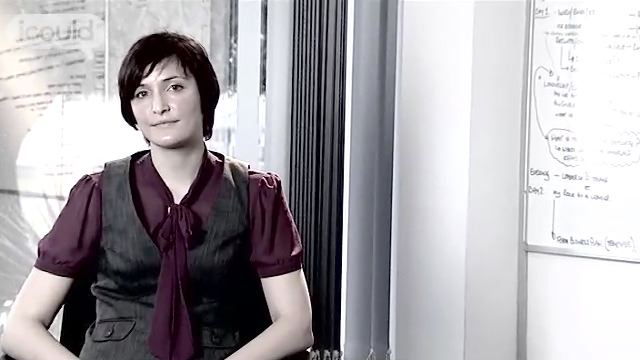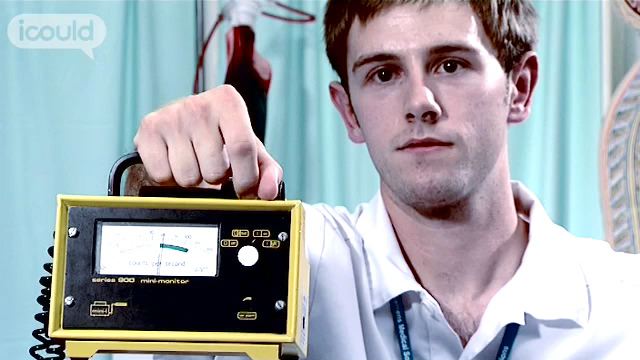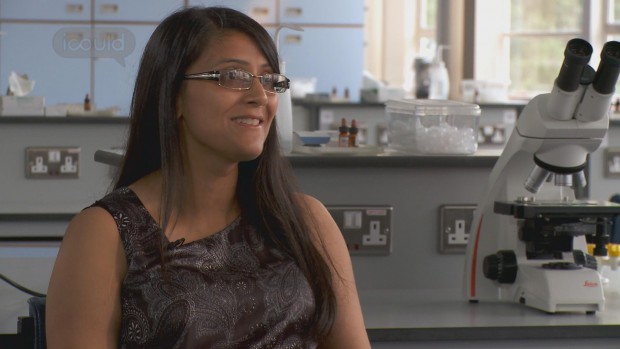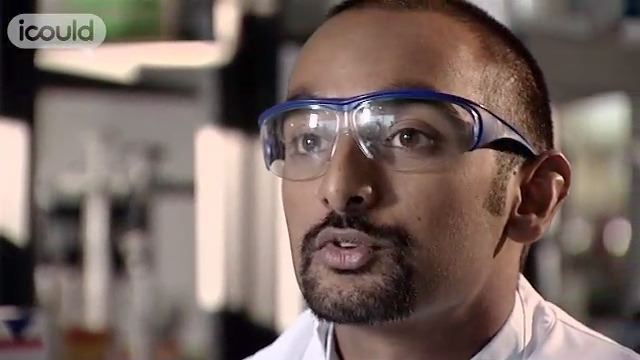Space Scientist and Science Communicator
Imperial College, London
Maggie Aderin Pocock
00:02 So my name is Dr Aderin Pocock and I’m a space scientist and a science communicator or space scientist, I actually build satellites that go up in space and science communicator I like to try and translate some of the complexity of science into a simple format for everybody to understand.
00:20 It was a job that I’ve always wanted really since I was a child of the age of 6 I’ve wanted to get out into space and it’s getting sort of harder and harder to envisage me getting out there but I feel I’m doing the next best thing and I’m building instrumentation that goes out into space.
00:35 My PHD was in mechanical engineering but before that I did my degree which was in physics and so that was quite an interesting hybrid for me cos of doing the physics and the mechanical engineering turned out to be a perfect marriage for making satellites in the future.
00:48 The first sort of instrumentation I was working on was something called a missile warning system and this was quite a complex piece of equipment but what it was designed to do was warn pilots when a missile was coming and then automatically let off flares to protect the pilot and the aircraft.
01:05 My parents broke up when I was quite young and so I sometimes I was, my mother had custody of me and sometimes my father had custody of me and as a result I was transferred across the country a lot so it was an interesting education system.
01:19 When I was in primary and secondary education for a long time I was considered to be very bright and so it was always a disappointment for me cos when I was a child I, I got really hooked on space and I told my school teacher ‘yeah I want to be an astronaut, I want to go into space’ and they sort of looked at me a little sadly and said ‘Well Maggie you suffer from dyslexia you’re probably not going to be very academic at all’ and so that was always a disappointment. But my father was wonderful when he told me that if you really work hard you know the skies your limit.
01:45 Because my English and my sort of spelling wasn’t very good, it meant I focused on the science subjects and I found that was quite logical in things like that so I admired people like Spock on Star Trek and so by using those skills I was able to develop sort of techniques to cope with the dyslexia and sort of move on through my career.
02:04 The Science Communication is a recent manifestation for me because I have a team of scientists and engineers working for me and I’ve been trying to recruit people and about 4 years ago I realised that I’m trying to recruit people but I can’t find people to join my team, people with the right skills and my husband is also an engineer and we met during our PhDs and would go home and say ah yes you can’t recruit people either, what’s going on. And we suddenly realised well if we can’t recruit people, we have jobs that we really love and enjoy but are we telling anybody else about those jobs? So we decided that we needed to get out there and encourage more people to join us.
02:41 As a scientist and an engineer I’ve travelled across the globe and seen some fantastic things. Worked on sort of telescopes on mountains where the stars make my heart sing to see them and so I go to schools across the country and tell kids you know this was my progression. Also, often when kids hear about scientists and engineers they say, they think as I say you need a brain the size of a small planet to be a scientist or an engineer, so I like to point out you know I was a dyslexic you know I was in remedial classes you know if some of my schools and I went to, sort of like I think 13 different schools when I was growing up, but that shouldn’t stop you. If you have a passion for something or an interest in something that is the criteria and that’s what can drive you on.
03:21 I think I really love being a scientist and an engineer. We take on some of the biggest challenges of the world, much of the work I’m doing at the moment is associated with climate change and trying to understand how our climate is changing and viewing that from space. To be part of a team that is involved in that, to me is fantastic.
03:39 I’m doing a project with Blue Peter at the moment, where I’ve given Blue Peter a satellite and we’re going to launch it into space and kids will get an image coming from the Blue Peter 1 satellite every week and it took a long time to set that project up, but I did it in my spare time, but because it’s so much fun and you know I got a Blue Peter badge and I’m working with Blue Peter and I’ve been on the programme now, cos it’s so much fun it doesn’t really feel like work.
04:04
Dr Aderin Pocock is a Space Scientist and a Science Communicator, “I actually build satellites that go up in space”. She has coped with dyslexia, and a varied education involving 13 different schools.
More information about Physical scientists
The UK average salary is £29,813
There are 37.5 hours in the average working week
The UK workforce is 47% female and 53% male
Future employment
- Conducts experiments and tests and uses mathematical models and theories to investigate the structure and properties of matter, transformations and propagations of energy, the behaviour of particles and their interaction with various forms of energy;
- Uses surveys, seismology and other methods to determine the earth’s mantle, crust, rock structure and type, and to analyse and predict the occurrence of seismological activity;
- Observes, records and collates data on atmospheric conditions from weather stations, satellites, and observation vessels to plot and forecast weather conditions;
- Applies mathematical models and techniques to assist in the solution of scientific problems in industry and commerce and seeks out new applications of mathematical analysis.
